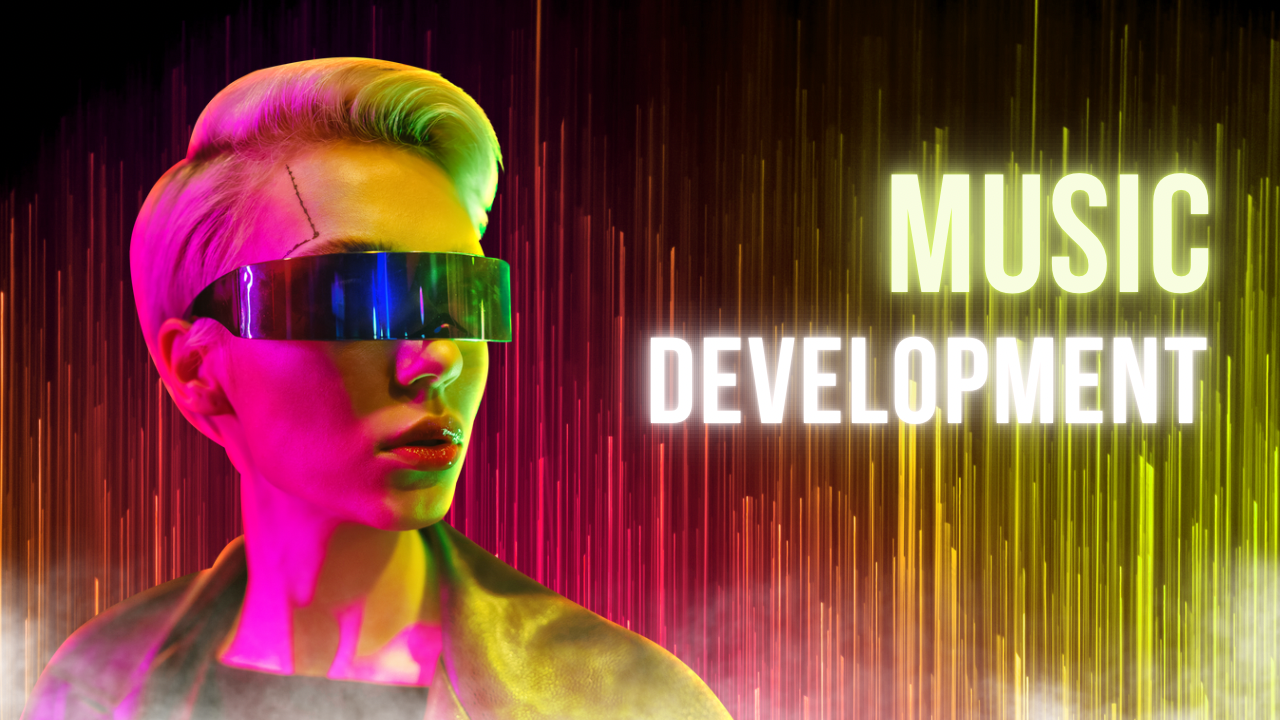Whether you’re an aspiring music producer or a seasoned artist looking to refine your craft, developing your music production skills is a continuous journey. In 2024, with advancements in technology and an ever-evolving music landscape, there are countless resources available to help you improve. Here’s a comprehensive guide to help you become a better music developer.
1. Understand the Basics of Music Theory
A solid foundation in music theory can significantly enhance your production skills. Key concepts to grasp include:
- Scales and Chords: Understanding major and minor scales, as well as chord progressions, is crucial for creating melodies and harmonies.
- Rhythm and Timing: Familiarize yourself with time signatures, beats, and syncopation to create dynamic rhythms.
- Song Structure: Learn about common song structures (verse-chorus, AABA, etc.) to help you organize your compositions.
Investing time in music theory will deepen your understanding of how music works and improve your creative decisions.
2. Get Hands-On with DAWs
Digital Audio Workstations (DAWs) are essential for music production. Choose a DAW that suits your style and explore its features:
- Popular DAWs: Some widely used DAWs include Ableton Live, FL Studio, Logic Pro, and Pro Tools. Each has unique strengths, so experiment with a few to find your preference.
- Learn Shortcuts: Familiarize yourself with keyboard shortcuts and essential tools within your DAW to speed up your workflow.
- Utilize Plugins: Experiment with different virtual instruments, effects, and audio plugins to expand your sonic palette.
Hands-on practice with your chosen DAW will help you become more efficient and creative in your productions.
3. Analyze and Reverse Engineer Tracks
One of the best ways to learn is by analyzing the music you love:
- Break Down Tracks: Choose a few of your favorite songs and dissect their structure, instrumentation, and arrangement. Identify what makes them work.
- Reverse Engineer: Try to recreate elements of the song in your DAW. Focus on melody, harmony, rhythm, and production techniques used.
- Study Genres: Explore various genres to understand different production styles and techniques, enriching your musical vocabulary.
This practice will help you develop a critical ear and inspire your own creative process.
4. Practice Regularly and Experiment
Consistency is key to improvement in any skill, including music production:
- Set Aside Time: Dedicate specific hours each week to practice and experiment with new ideas.
- Try New Techniques: Don’t be afraid to explore different genres, instruments, and production techniques. Experimentation can lead to unique sounds and ideas.
- Collaborate with Others: Working with other musicians or producers can introduce you to new perspectives and techniques.
Regular practice will enhance your skills and encourage creative exploration.
5. Invest in Quality Equipment
While it’s possible to produce music with minimal gear, investing in quality equipment can elevate your productions:
- Audio Interface: A good audio interface will improve sound quality and allow you to connect microphones and instruments easily.
- Monitors and Headphones: Invest in studio monitors and quality headphones to ensure accurate sound representation.
- MIDI Controller: A MIDI keyboard or controller can enhance your workflow and allow for more expressive performances.
Having the right tools can make a significant difference in your production process.
6. Learn from Online Resources
There is a wealth of online resources available to help you improve your music production skills:
- YouTube Tutorials: Many producers share their knowledge through tutorials on specific techniques, DAWs, and genres.
- Online Courses: Platforms like Udemy, Skillshare, and Coursera offer structured courses on music production, sound design, and songwriting.
- Music Production Blogs: Follow blogs and forums to stay updated on the latest trends, tips, and tools in the music industry.
Taking advantage of these resources will expand your knowledge and keep you inspired.
7. Develop Your Own Style
As you improve, focus on developing your unique sound:
- Explore Influences: Draw inspiration from various artists and genres, but strive to create something distinctly yours.
- Experiment with Sound Design: Don’t shy away from manipulating sounds and creating your own samples. Use synthesis and effects to develop unique textures.
- Be Authentic: Stay true to your musical vision and interests. Authenticity resonates with listeners and sets you apart.
Developing your style will enhance your identity as a music developer and attract a dedicated audience.
8. Seek Feedback and Critique
Receiving constructive feedback is essential for growth:
- Join Music Communities: Engage with online forums, social media groups, or local music collectives where you can share your work and receive input.
- Collaborate for Feedback: Work with fellow musicians to provide and receive feedback on each other’s projects.
- Be Open to Critique: Constructive criticism can help you identify areas for improvement and refine your sound.
Feedback is a valuable tool for personal and artistic growth.
9. Network Within the Music Industry
Building connections in the music industry can open doors to new opportunities:
- Attend Workshops and Events: Participate in music production workshops, conferences, and local shows to meet industry professionals and like-minded individuals.
- Engage on Social Media: Use platforms like Instagram, Twitter, and LinkedIn to connect with artists, producers, and industry experts.
- Collaborate and Network: Reach out to fellow musicians and producers for collaborations, and share your work within your network.
Networking can lead to partnerships, mentorships, and exposure for your music.
10. Stay Updated on Trends and Technology
The music industry is constantly evolving, with new trends and technologies emerging:
- Follow Industry News: Stay informed about the latest music production tools, software updates, and genre trends.
- Experiment with New Technologies: Explore new plugins, software, and production techniques as they arise. Staying current can give you an edge in your productions.
Being aware of trends will keep your music fresh and relevant.
Conclusion
Becoming a better music developer is a rewarding journey that requires dedication, practice, and a willingness to learn. By focusing on the tips outlined above, you can enhance your skills, develop your unique sound, and succeed in the dynamic world of music production.

